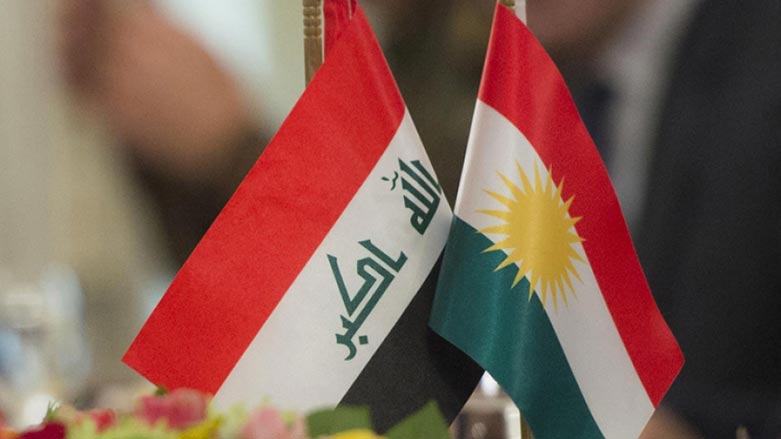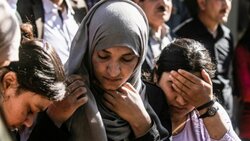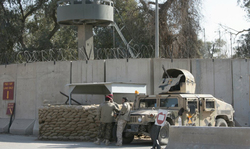ISPI: Iraq is caught between domestic and regional challenges

Recep Tayyip Erdoğan’s visit to Baghdad and Erbil on April 22nd has once again placed the spotlight on Iraq, a country grappling with both regional and domestic challenges. Against the backdrop of deepening neighborly cooperation, Iraqi President Abdul Latif Rashid and Prime Minister Mohammed Shia al-Sudani received the Turkish President, marking the first visit in over a decade. While Baghdad intends to elevate diplomatic relations with Turkey to address shared energy, water and security concerns, behind Ankara’s willingness to mend ties with Iraq mainly lays the goal of weakening the Kurdistan Workers’ Party (PKK). Erdoğan’s visit also included a meeting with the President of the semi-autonomous Kurdistan Region of Iraq (KRI), Nechirvan Barzani, and the Kurdistan Regional Government (KRG)’s Prime Minister, Masrour Barzani, signaling Turkey’s interest in helping Baghdad solve controversies with the KRI. These include unaddressed oil disputes that still very much shape Baghdad’s relations with the KRG, which, in addition to having drastically cut off oil exports to Turkey, is increasingly suffering from the erosion of the KRI’s autonomy by the Tehran-influenced Baghdad’s government. In fact, Baghdad’s proximity to the Islamic Republic, is putting Iraq in an uneasy situation even at the regional level. Amidst escalating regional tensions, it is becoming increasingly difficult for the Arab country not to be dragged into Iran-Israel’s regional tensions, while also cautiously balancing Iranian and Western interests.
Despite rapprochement with Iraq, Turkey is still mainly committed to weaken the PKK
“Iraq and Turkey have a long list of reasons to maintain close ties in principle, such as water, energy, pipelines, roads, security and trade. Yet, Turkey’s main motive for the ongoing rapprochement is to reduce the fighting strength of the PKK, especially in Sinjar and Makhmour. Iraq, however, seeks better connectivity and trade. Baghdad has never been part of the conflict between Turkey and the PKK – and does not want to be. Iraq’s recent ban of the PKK looks like a confidence building measure, but it is mostly symbolic since Baghdad has limited authority in the KRI areas run by the Patriotic Union of Kurdistan where the PKK operates. Without greater Turkish willingness to move ahead on agenda items that matter to Iraq, the current dialogue risks running into the habitual sands of Iraqi factionalism and Turkish overbearingness.”
(Erwin Van Veen, Senior Research Fellow, Clingendael)
The PMF is using coercion to undermine the autonomy of the KRG
“Baghdad has incrementally degraded the autonomy of the Kurdistan Region of Iraq under the instructions and influence of the Popular Mobilization Forces (PMF). Indeed, it is no coincidence that Baghdad’s belligerent approach to the KRG has developed in tandem with the ascension and political prominence of the PMF, which dominates the Iraqi parliament and exercises significant influence over the Iraqi Prime Minister’s Office. With Iranian support, the PMF has engaged in negotiations with the KRG and its ruling party, the Kurdistan Democratic Party (KDP) through violent tactics and intimidation. The PMF has consequently scored several political and legal advantages, using its influence over the Supreme Court (which lacks constitutional legitimacy) to disrupt Kurdish oil exports. The Court has also removed Kurdistan’s allocation of parliamentary seats that the constitution reserves for religious minorities, a decision that could see the KDP boycott Kurdistan’s parliamentary elections. This boycott would mark the beginning of an Iranian-dominated political order in Iraq, one that has long been in the making.”
(Ranj Alaaldin, Associate Research Fellow, ISPI; Senior Research Fellow, Middle East Council on Global Affairs)
The oil dispute still broadly defines Baghdad-Erbil’s relations
“The oil dispute is playing once again a crucial role in the relations between Baghdad and Erbil. This is nothing new: ten years ago, in 2014, the central government reacted to the KRG’s independent oil export towards Turkey by freezing budget payments to Erbil. Throughout the past two years, the federal government has tried in several ways to centralize the control of the Kurdish oil sector, as exemplified by the 2023 budget law or by the recent ruling of the Supreme Court calling for Erbil to hand over all its oil and non-oil revenues to Baghdad. This dispute about the management of oil export and revenues is also hindering the reopening of the Kirkuk-Ceyhan pipeline, halted since March 2023, with devastating economic consequences for Erbil. As a matter of fact, the solution of the pipeline dossier will tell us a lot about the evolution of the relations between Baghdad and Erbil.”
(Lorena Stella Martini, Research Fellow and MENA Coordinator, the Square – Mediterranean Centre for Revolutionary Studies)
To stay out of tensions Iraq must avoid being used as a launch-pad
“Iraqi territory is being used as a launch-pad for attacks on Israel. The number of attacks on Israel by Iran-backed militias in Iraq is escalating sharply and there have been 69 attacks on Israel by the Islamic Resistance in Iraq since November 2, 2023. For Iraq, it seems impossible to stay out of Iran-Israel tensions as many of the Iran-backed militias in Iraq are part of the Prime Minister’s Commission of the PMF, a formal branch of Iraq’s security forces. This means an Iraqi state agency is attacking a foreign country, seemingly without the permission of the commander-in-chief of Iraqi forces, Prime Minister Mohammed Shia al-Sudani. This is hardly an example of keeping Iraq out of the conflict, and nor is this an example of balancing Iranian versus Western interests. To allow these attacks from Iraqi’s territory is to pick a side in the crisis, and the apparent Israeli bombing of a PMF base south of Baghdad on April 20 is a warning shot that Iraq cannot stay neutral as long as its land is used to strike Israel.”
(Michael Knights, Jill and Jay Bernstein Senior Fellow, Washington Institute for the Near East Policy)
Al-Sudani’s government must prevent involvement in a regional war and secure US funds
“In addition to the legacy challenges that every Iraqi government faces, such as the domestic relations between Baghdad and Erbil, the challenges currently facing Prime Minister Mohammed al-Sudani are the prospects of being dragged into a broader regional war and the inaccessibility of profits from Iraq’s oil sales to New York. As Iraq is still in the transition phase of incorporating paramilitary groups within the state’s security apparatus, certain armed groups with a higher level of autonomy will continue to pose a challenge as long as the conflict in Gaza lingers. Concurrently, since the start of al-Sudani’s term, the US government has imposed stringent restrictions to Iraq on accessing funds in fear of US dollar smuggling to Iran. Therefore, al-Sudani’s government must continue to work out arrangements with the US Treasury while implementing its own fiscal reforms to access foreign reserves in USD.”





